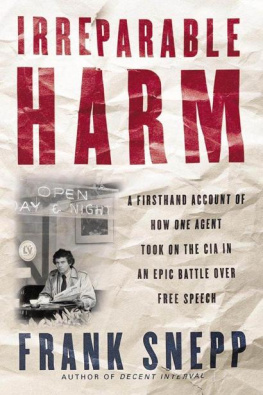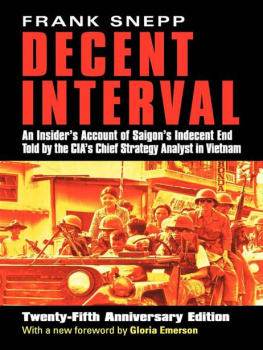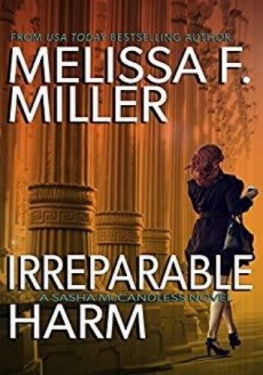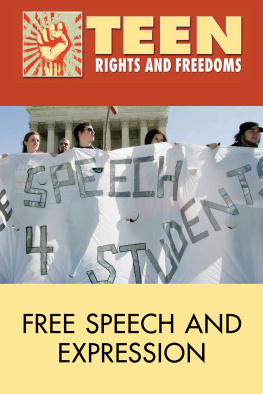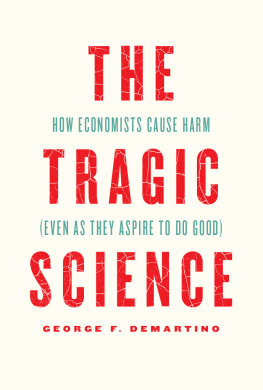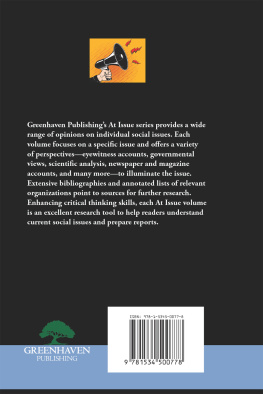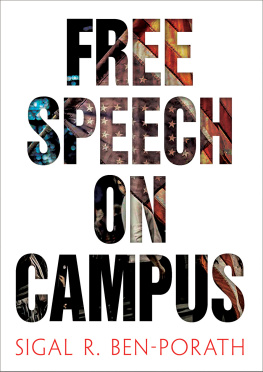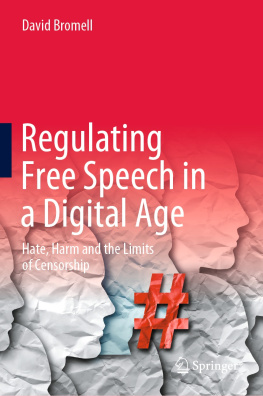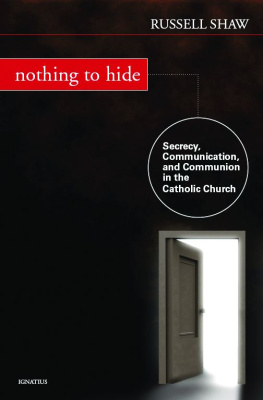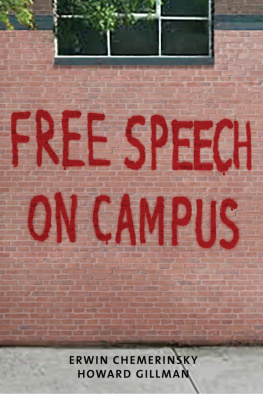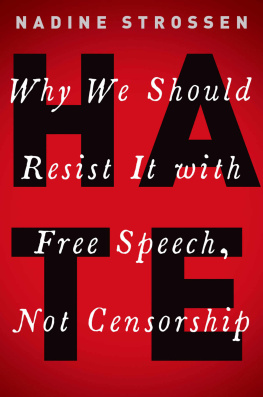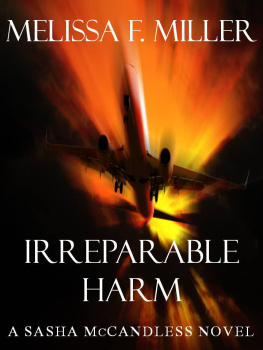
IRREPARABLE HARM
FRANK SNEPP
IRREPARABLE
HARM
A Firsthand Account
of How One Agent
Took On the CIA in an
Epic Battle Over
Free Speech
Foreword by Anthony Lewis

1999 by Frank Snepp
Published by arrangement with Random House Trade Publishing, a division of Random House, Inc.
Foreword 2001 by the University Press of Kansas
All rights reserved
Published by the University Press of Kansas (Lawrence,
Kansas 66045), which was organized by the Kansas Board of
Regents and is operated and funded by Emporia State
University, Fort Hays State University, Kansas State
University, Pittsburg State University, the University of
Kansas, and Wichita State University
Library of Congress Cataloging-in-Publication Data
Snepp. Frank.
Irreparable harm: a firsthand account of how one agent took on the CIA in an epic battle over
free speech / Frank Snepp; foreword by Anthony Lewis.
p. cm.
Originally published: New York : Random House, 1999. With new foreword.
Includes index.
ISBN 978-0-7006-1091-4 (pbk. : alk. paper)
ISBN 978-0-7006-2341-9 (e-book)
1. Snepp, FrankTrials, litigation, etc. 2. Snepp, Frank. Decent interval. 3. United States. Central Intelligence AgencyOfficials and employees. 4. Prior restraintUnited States. 5. Freedom of the pressUnited States. 6. National securityUnited States.
I. Title.
KF228.S559 S65 2001
342.730853dc2t00-047305
British Library Cataloguing in Publication Data is available.
Printed in the United States of America
10 9 8 7 6 5 4 3 2 1
The paper used in this publication meets the minimum requirements of the American National Standard for Permanence of Paper for Printed Library Materials Z39.48-1984.
To my beloved sisters and brother,
Candy, Frances, and David,
for whom this book became
a passage of reconciliation
in more ways than one
CONTENTS
FOREWORD
Anthony Lewis
Security is like liberty, in that many are the crimes committed in its name.Supreme Court Justice Robert H. Jackson
In the United States, we are free to speak our minds on any subject. The First Amendment to the Constitution protects our right to say what we think, however unwelcome the message may be. And the central meaning of the First Amendment, as the Supreme Court has put it, is the right to criticize government and its officials.
So we believe. But the story of Frank Snepp mocks our belief. For criticizing the public performance of government officials, he was severely punished. Indeed, the punishment continues. Before he speaks or writes a word on the subject closest to his heart, he must get the approval of Central Intelligence Agency censors. It is elementary American law that prior restraint on speechcensorshipis especially disfavored. But Snepp is under a lifetime prior restraint.
How did it happen? This gripping book is the answer to that question, It is a human story, of a man who loved the truth not wisely but too well. It is also a shocking revelation of how the law can be twisted in a country that prides itself on what is written above the marble pillars of the Supreme Court building, Equal Justice Under Law. Snepp was the victim of unequal justice, applied to him out of personal animus, in violation of legal precedents and the Supreme Courts own rules.
Snepp had what he himself calls an obsession. It was to bring out the truth about the shameful way the United States pulled out of Vietnam in 1975, leaving behind thousands of Vietnamese who had worked for the CIAand files that contained their names. As a result, many were tortured, killed, or detained for years in re-education camps. Snepp knew why that disgrace had happened. He was a CIA employee in Vietnam, one who was totally committed to the cause of maintaining a nonCommunist South Vietnam. As North Vietnamese forces rolled through the countryside in 1975, he and other agents warned that they intended to go right on to the South Vietnamese capital, Saigon. But Henry Kissinger, then Secretary of State, and other high civilian and military officials were sure that North Vietnam preferred to negotiate rather than capture Saigon, so they ignored the intelligence warnings. Thus, they were unprepared when the North Vietnamese did exactly what intelligence had predicted. As the North Vietnamese marched into Saigon, the Americans in panic flew out on helicopters.
Snepp loyally tried to get the CIA to examine its own and other official failings. When no one wanted to listen inside the system, he went outside. He published a book on what had happened, Decent Interval, Seymour M. Hersh, the great investigative reporter, called it a devastating account of not only the last days in Saigon but of CIA failures and misconduct earlier in the war.
It was a classic example of how American democracy is supposed to work. By opening itself to criticism, the government makes itself accountableand learns from errors to adopt better policies in future. But the Director of Central Intelligence, Stansfield Turner, was furious. He thought Snepp had promised to show his manuscript to the CIA before publishing a book. Snepp, on joining the agency and thereafter, had signed agreements not to disclose classified information without prior approval. In his opinion the book contained nothing classified, so he felt no obligation to seek approval. But Turner thought the judgment on whether there was any secret information in the book was the CIAs to make. He urged the Justice Department to sue Snepp, and it did so.
The trial was before a flagrantly biased federal judge in Virginia, Oren Lewis. When Director Turner testified that books about the CIA had drawn complaints from allied intelligence services and so hurt our ability to get information from them, the judge would not let Snepps lawyer ask on crossexamination whether his book in particular had evoked such complaints. The Justice Department argued that the agreements signed by Snepp promising to protect classified material were binding contracts and he had violated them. The trial judge agreed, and so did the U.S. Court of Appeals for the Fourth Circuit when Snepp took the case there. It ordered him to pay punitive damages to the Government.
If Snepp had given up at that point, he and his case would be footnotes in die law of free speech. But gripped by his certainly of being right, he insisted that his lawyer petition the Supreme Court to review the decision. The Government filed what it called a conditional cross-petition. It was satisfied with the Court of Appeals decision, it said. But if the Supreme Court agreed to hear the case, it wanted to argue for a different remedy. Instead of punitive damages, it would ask for a constructive trustwhich would oblige Snepp to turn over to the Government everything he ever earned from Decent Interval.
Without a hearing, without giving Snepps lawyer an opportunity to brief the issue, the Supreme Court granted the petition for review and summarily imposed the constructive trust suggested by the Government. It issued an unsigned per curiam opinion that was a travesty of judicial reasoning. From someone who respects the Court as much as I do, it comes hard to say that. But I wrote at the time of the decision in 1980 that the justices had shown contempt for the rule of law, and the intervening years have made their performance look if anything more egregious.
Next page
